EMPATHIC AI - ART CREATES INDUSTRY:
A S+T+ARTS SYMPOSIUM
2 - 3 july 2020 | on-site and online
OVERVIEW OF THE TWO-DAY SYMPOSIUM
2nd July
1.15 PM - 6.15 PM CEST [LIVE STREAMED]
Exhibition tour, dialogues, panels and performance.
Watch below the live streaming of the symposium's first day! |
You can also watch the live stream in other platforms and ask us questions or comment. For that, join us at Kompetenzzentrum social media! |
3rd July
10.00 AM - 12.30 PM CEST [LIVE STREAMED]
Dialogue, curator´s guided tour and Talk
6.00 PM - 10.00 PM CEST [NOT LIVE STREAMED]
On-site opening of the NEAR + FUTURES + QUASI + WORLDS exhibition --> Register Here To Attend.
Click on the image below and watch the live streaming of the symposium's second day on STARTS Youtube! |
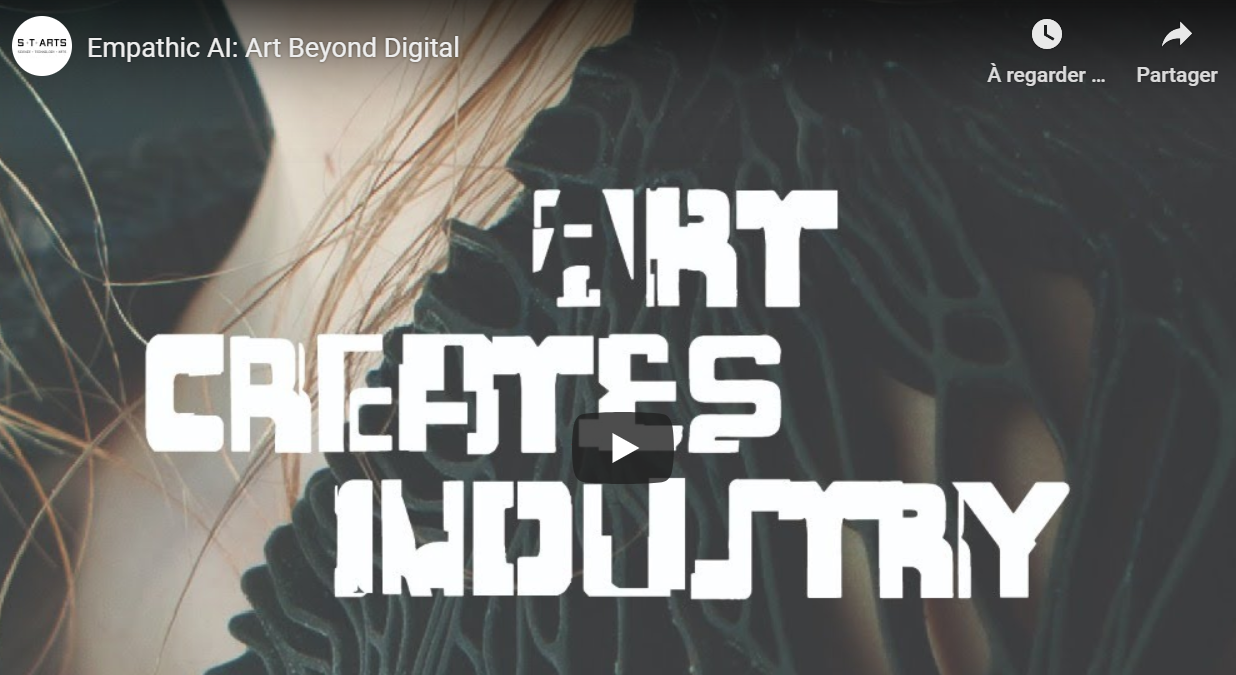 |
You can also watch the live stream in other platforms and ask us questions or comment. For that, join us at STARTS social media! |
On July 2nd, S+T+ARTS, in collaboration with the Germany´s federal government´s Centre of Excellence and Creative Industries (Kompetenzzentrum Kultur-und Kreativwirtschaft des Bundes), will examine how the arts and the creative sector in general, and in particular the arts, contribute to overcoming urgent societal and environmental challenges. It will bring together experts from the creative industries and the arts, technology, policy-makers and industry to discuss, inspire and experiment with art and artificial intelligence (AI). As of July 1st, starts the German EU Council Presidency for the next 6 months, we are delighted to say that our S+T+ARTS symposium organized in close collaboration with the Germany´s federal government´s Centre of Excellence and Creative Industries, fall under the #eu2020de umbrella. Read more online.
The symposium will inaugurate the NEAR + FUTURES + QUASI + WORLDS S+T+ARTS exhibition, to occur at STATE Studio in Berlin, from July 2 to 26.
On the occasion of the 5th anniversary of theS+T+ARTS – innovation at the nexus of Science, Technology, and the Arts initiative of the European Commission (General Direction Connect), the symposium will also be marked by the opening of the exhibition NEAR FUTURES AND QUASI-WORLDS at the STATE Studio Berlin. For this purpose there will be the possibility of a hybrid tour of the exhibition on July 2, and on July 3 there will be an opportunity to attend discussions between artists and scientists.
The CCI offer approaches which reshape the relationship between people & digital technologies, recognise empathy as the driving force behind technology development and promote art and creativity as sources of innovation in all industries. The hybrid symposium “Empathic AI – Art creates Industry“, will bring together experts from the creative industries and the arts, technology, policy-makers and industry to discuss, inspire and experiment with art and artificial intelligence (AI).
Which impact do the cultural and creative industries, and in particular the arts, generate for the development of innovations between industry, people and technology?
The cultural and creative sector and more specifically the arts play a key role in a European approach to AI that is significantly different from that of other relevant global players and based on EU’s culture and humanistic values. Artistic contributions could inform us on maintaining a healthy balance between humans and machines. Creativity and aesthetics become key not only to facilitate dialogues on the role of technology in our lives but to better implement a new generation of empathic digital technologies.
The aim is to show how important art and the creative industries are at the interfaces with industry, whether as a driver of innovation, as a value-driven impulse generator or in its strive to develop new future-oriented business models not the least those triggered by the rethinking of our lives and the role of digital in the current Corona crisis.
"A differentiating factor for an AI ‘made in Europe’ will be its human touch: a focus on the human dimension, an insistence that AI serves human needs: AI must enhance human capacity, not replace humans!"
Roberto Viola, Director General, DG CONNECT
PROGRAMME
Thursday, July 2nd, 2020 | 1.15 PM – 6.15 PM
Empathic AI – Art shapes Industry
Creative Economies as a key driver for innovation and impact
Fernanda Parente
Moderator
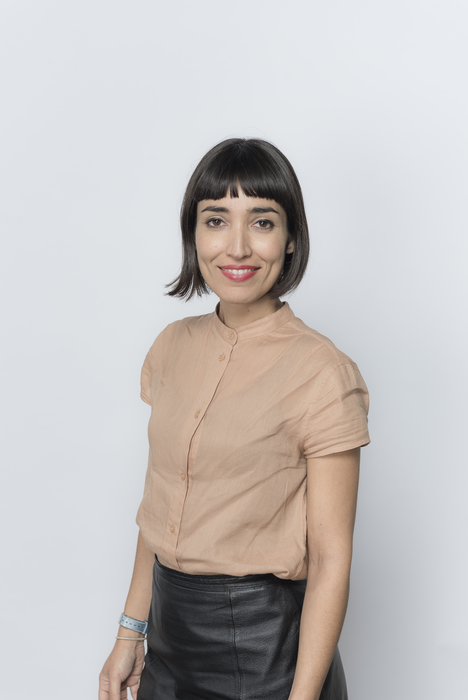 | Fernanda Parente is a curator and concept developer at the intersection of art, science and technology. In 2019 she co-founded Rosy DX, a studio for digitality with focus in the creative industry. She has previously curated for the film and technology festival Digital Biscuit, re:publica, Future Affairs and Performing Arts Festival Berlin among others. In addition, Fernanda has moderated and presented at several events including the Retune Festival, VR NOW Con and Performersion. |
13.15 – Opening and welcome from the hosts
Julia Köhn
Project Director, Federal Government’s Center of Excellence for the Cultural and Creative Industries
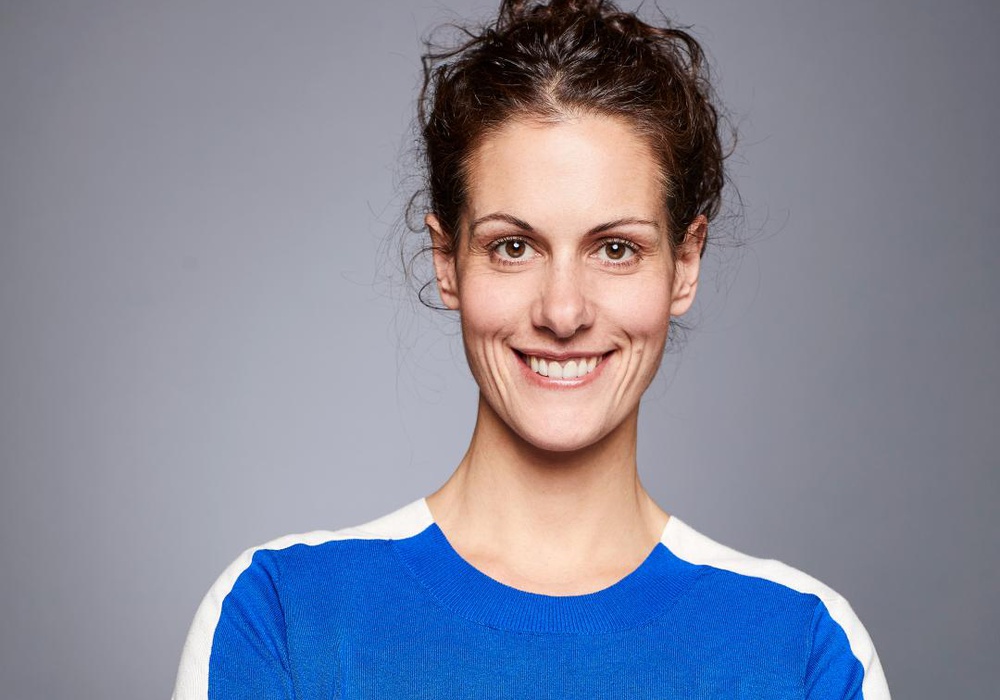 | Julia Köhn is part of the management team of Germany’s Federal Government’s Center of Excellence for the Cultural and Creative Industries. She is a trained actress with a diving instructor license and an MBA. After 10 years on stage and screen, she led a team of underwater technicians in Macau, China at one of the world’s largest circus shows. Back in Europe, she worked for a management consultancy focusing on cultural institutions and was responsible for the international projects at the crossroads between art and marine conservation for a private foundation in Vienna. She joined the u-institut in 2015, and has since then been supporting entrepreneurs from the cultural and creative industries in their entrepreneurial development as well as designing and implementing programmes, projects and ideas for the German Federal Government’s Center of Excellence for the Cultural and Creative Industries. |
13.30 – “NEAR + FUTURES + QUASI + WORLDS” Exhibition tour
Manuel Cirauqui
Curator, Guggenheim Museum Bilbao and Director, Eina/Idea, Barcelona
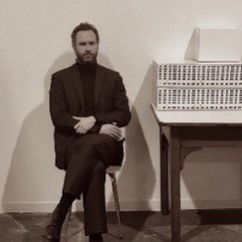 | Manuel Cirauqui is a curator and writer, working at the crossroads of contemporary art, design strategy, and experimental academia. At the Guggenheim Museum Bilbao, he has organized the major exhibitions Soto. The Fourth Dimension(2019);Architecture Effects(2018, co-curated with Troy Conrad Therrien);Henri Michaux. The Other Side(2018); Art and Space(2017); andAnni Albers. Touching Vision(2017), and he also oversees the institution’s Film & Video exhibitions programming. Recent projects in other international museums include the two-part exhibitionArtaud 1936,at the Museo Tamayo in Mexico City (2018); and the site-specific installationPuerto Rican Light (Cueva Vientos)by Allora & Calzadilla at Dia Art Foundation (2015, co-curated with Yasmil Raymond). Cirauqui has been a guest lecturer in numerous international universities such as MICA Maryland Institute College of Art, Baltimore; HEAD Haute École d’art et de design, Geneva; Aalto University of Art and Design, Helsinki; Universidad Complutense de Madrid; and served as Adjunct Lecturer in Critical Curating at the Rhode Island School of Design, Providence. |
https://eina.academia.edu/ManuelCirauqui
https://www.eina.cat/en/eina/professorat/manuel-cirauqui
14.00 – Welcome
Roberto Viola
Director-General European Commission
14.20 – Dialogue I
Art and engineering are no longer contradictory modes of thinking’ (Guenther Oettinger, EC commissioner). Julia Koerner, an architect and designer, and Refik Anadol, an artists very involved with technology, will discuss examples of how the arts can link with industrial research and development, both to tame technology and make its development more empathic and to free technology use from self-imposed limits.
Refik Anadol
Artist, Director, UCLA Faculty
| The media artist and director Refik Anadol is recognized worldwide among the most important practitioners working with machine intelligence and parametric data sculpture today. He is the recipient of a number of awards, including Microsoft Research’s Best Vision Award, German Design Award, UCLA Art+Architecture Moss Award, University of California Institute for Research in the Arts Award, SEGD Global Design Awards and Google’s Art and Machine Intelligence Artist Residency Award. His site-specific audio/visual performances have been presented in Walt Disney Concert Hall, Hammer Museum, International Digital Arts Biennial Montreal, ZKM | Center for Art and New Media in Karlsruhe, Ars Electronica Festival in Linz, l’Usine in Genève, among many others. |
Julia Koerner
Designer
| Julia Koerner received her master degrees in Architecture from the University of Applied Arts in Vienna and the Architectural Association in London. She works at the convergence of architecture, product design, and fashion design and she is internationally recognized for design innovation in 3D-Printing. She is the founder of JK Design specializing in digital design. Some of her most collaborations include Haute Couture Houses for Paris Fashion week and 3D printed costumes for Hollywood entertainment productions such as Marvel’s Black Panther in collaboration with Ruth Carter which won an Oscar for Best Costume Design. Museums and Institutions which have exhibited her work include the Metropolitan Museum of Art in New York (MET), the Art Institute of Chicago, the High Museum of Art in Atlanta, the Philadelphia Museum of Art, the Palais des Beaux Arts in Brussels, Museum of Applied Arts MAK Vienna, Ars Electronica in Linz, among others. |
14.45 – Break
15.00 – Panel I
The arts and the creative sector can drive creativity in industry. The arts in particular can combine critical thinking on the impact of technology with unforeseen solutions that can make technology more humane and help to root technology development in empathy, that is in a sense of what humans need and what humans feel. The CCI can hereby play a vital role in the ongoing digital transformation and in the topic of the future of work.
Claudia Schnugg
Researcher and Curator
Moderator
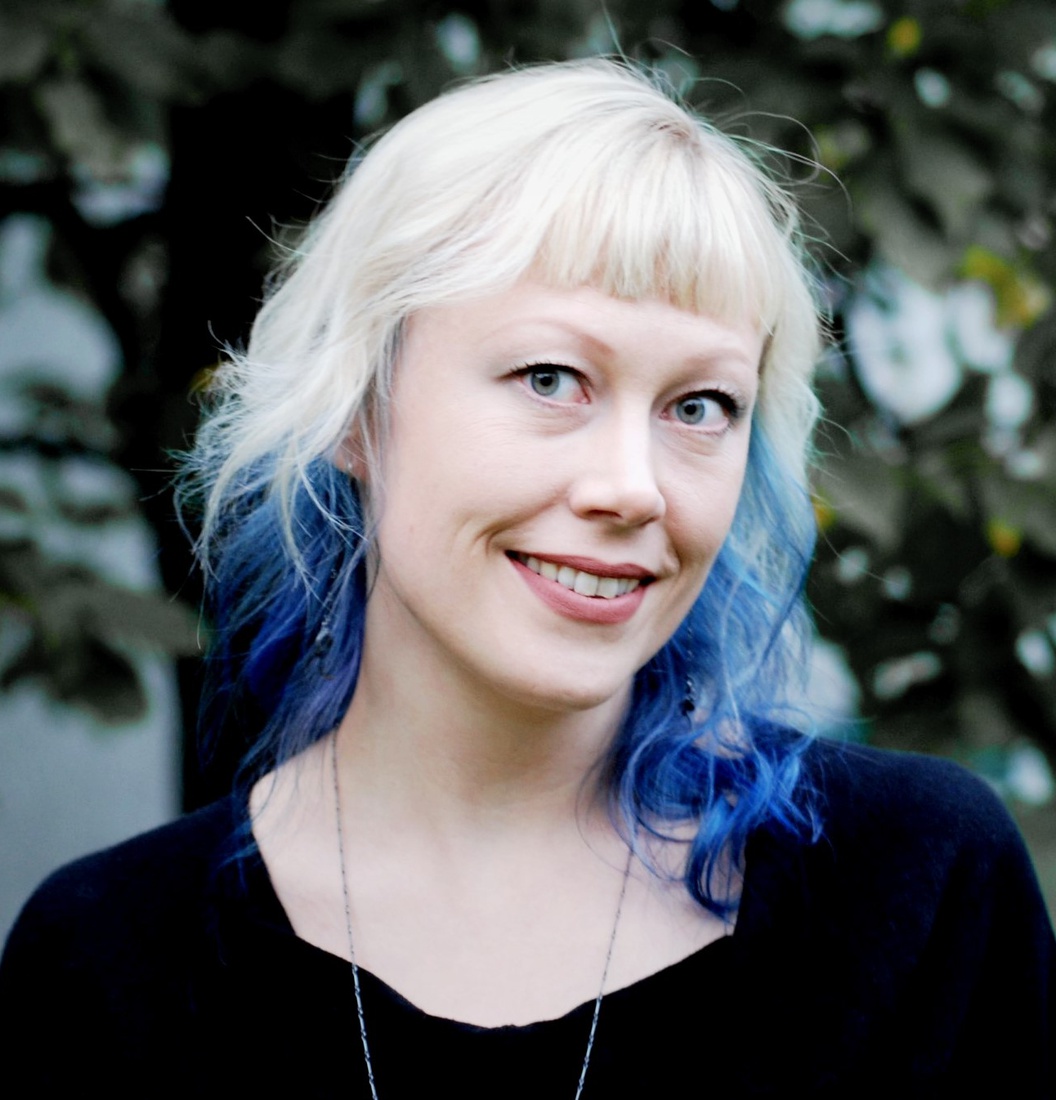 | Dr. Claudia Schnugg is independent researcher and curator in the field of art and science, and producer of artscience projects, looking at the intersection of art with science, technology, business, and society. Her academic work focuses on analyzing the effects of art and artistic initiatives in organizational and social settings, including change processes and a major focus on new technologies. As advocate of artscience collaboration, a producer and curator of residency programs, she has been the catalyst for numerous artscience projects. Thereby, Claudia is working with leading scientific institutions, tech corporations and cultural partners. She was assistant professor at JKU in Linz, visiting researcher at Copenhagen Business School, the Art|Sci Center + Lab, Los Angeles, and at European Southern Observatory, Chile. She headed the Ars Electronica Residency Network (2014-2016) and most recently was first Artistic Director of Science Gallery Venice (2018-2019). Her most recent book is “Creating ArtScience Collaboration” (2019). |
Dr. Christian Ehler
Member of the European Parliament, EPP
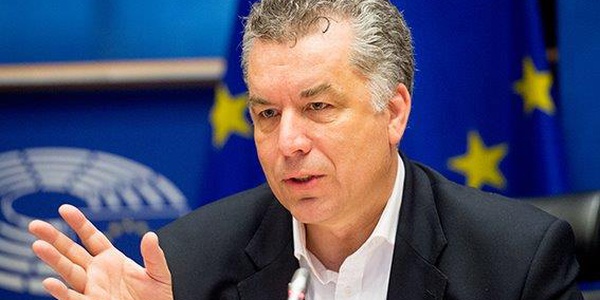 | Christian Ehler is a Member of the European Parliament since 2004. He was born on 17 August 1963 in Munich. He holds a degree in journalism and political economics from the Ludwig-Maximilian University in Munich (1991) as well as a PhD of law and political science on the topic of U.S. trade policy (1993). Prior to his work as a Member of the European Parliament, Ehler held office as Member of the State Parliament of Brandenburg and as Member of the Board of the Christian Democratic Union of Germany (CDU). In the European Parliament Christian Ehler is coordinator of the European People’s Party for the Committee on Industry, Research and Energy (ITRE) and substitute member of the Committee on Culture and Education (CULT). Further, he serves as member of the Delegation for Relations with the United States as well as substitute member of the Delegation for relations with Israel and substitute member of the Delegation to the Parliamentary Assembly of the Union for the Mediterranean. In 2014 Ehler co-founded the Intergroup “Cultural and Creative Industries”. |
Prof. Vladan Joler
Academic, Researcher and Artist, University of Novi Sad and SHARE Foundation
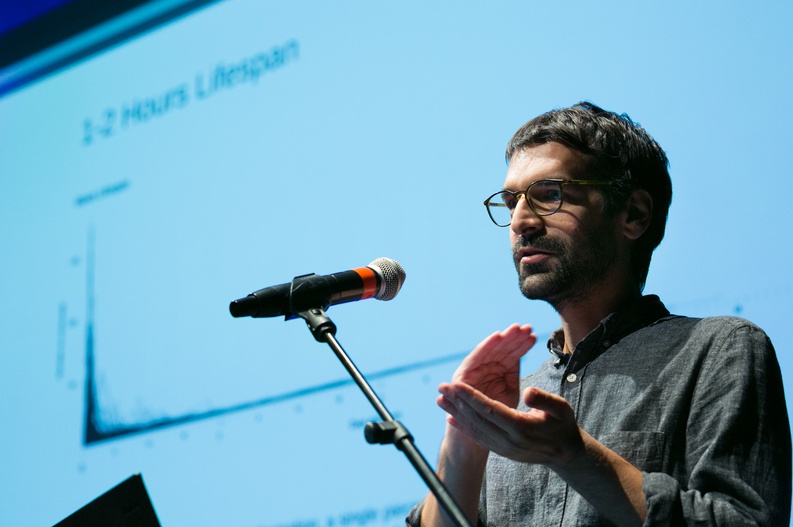 | Prof. Vladan Joler (b.1977) is an academic, researcher and artist whose work blends data investigations, counter cartography, investigative journalism, writing, data visualization, critical design, and numerous other disciplines. He explores and visualizes different technical and social aspects of algorithmic transparency, digital labor exploitation, invisible infrastructures, and many other contemporary phenomena in the intersection between technology and society. Vladan Joler’s work is included in the permanent collections of the Museum of Modern Art (MoMA) in New York City, the Victoria and Albert Museum and Design Museum in London and included in the permanent exhibition of Ars Electronica Center. His work is exhibited in more than a hundred international exhibitions, including institutions and events such as XXII Triennale di Milano, ZKM Karlsruhe, HKW Berlin, Vienna Biennale, Victoria and Albert Museum, Transmediale, Ars Electronica, Biennale WRO, Design Society Shenzhen, Hyundai Motorstudio Beijing, MONA, Glassroom, La Gaite Lyrique and institutions such as Council of Europe in Strasbourg and European Parliament in Brussels. Aside from his permanent professorship position, i.e. tenure, at the Academy of Arts in Novi Sad where he teaches at the New Media department, he has given lectures at numerous educational and art institutions. |
Dr. Diana-Alina Serbanescu
Team Lead of Research Group, Criticality of AI-based Systems (Critical AI Lab)
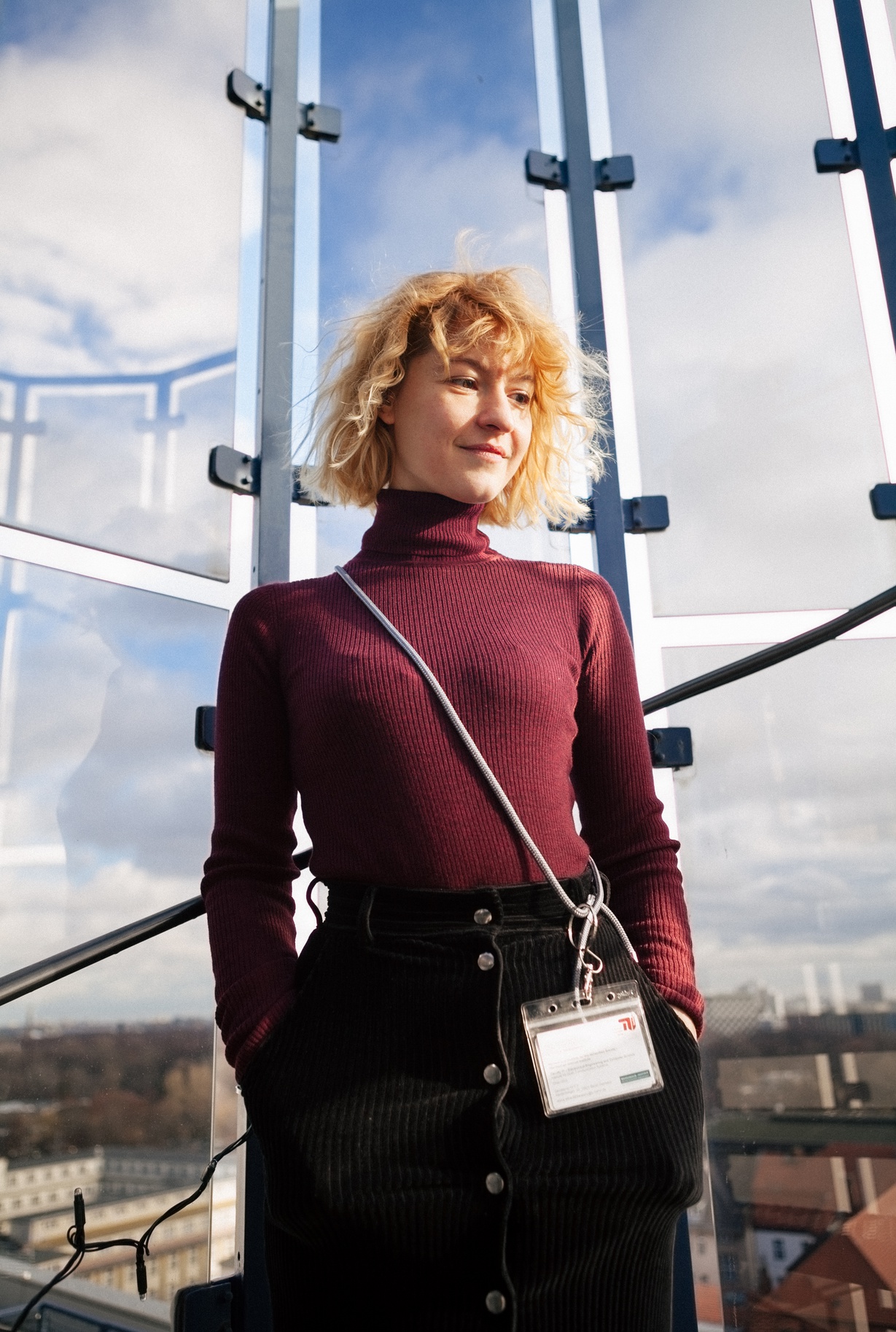 | With a double background in computer science and performing arts, Diana Serbanescu works on interdisciplinary approaches to culture, society and technology, with a strong focus on human factors. As team lead of the group researching the Criticality of Artificial Intelligence at the Weizenbaum Institute for the Networked Society, she promotes a practice-led research on the topics of bias and explainability in relation to machine learning algorithms, revealing inherent symbolic power structures in current technological systems. She also co-founded REPLICA, a performing arts platform inviting creatives and scientists to collaborate on imagining hybrid behavioural models for humans and machines, and to prototype future tools, cultures and rituals. As the artistic director of REPLICA, Diana Serbanescu explores the potential of sentimental machines: the new human, the measurability of emotion, or the continued validity of traditions in an era of artificial intelligence and digital colonisation, when technologies permeate the collective unconscious and generate new aesthetics. |
https://weizenbaum-institut.de
https://twitter.com/JWI_Berlin
Patrick van der Smagt
Director of AI Research Lab, Volkswagen Group
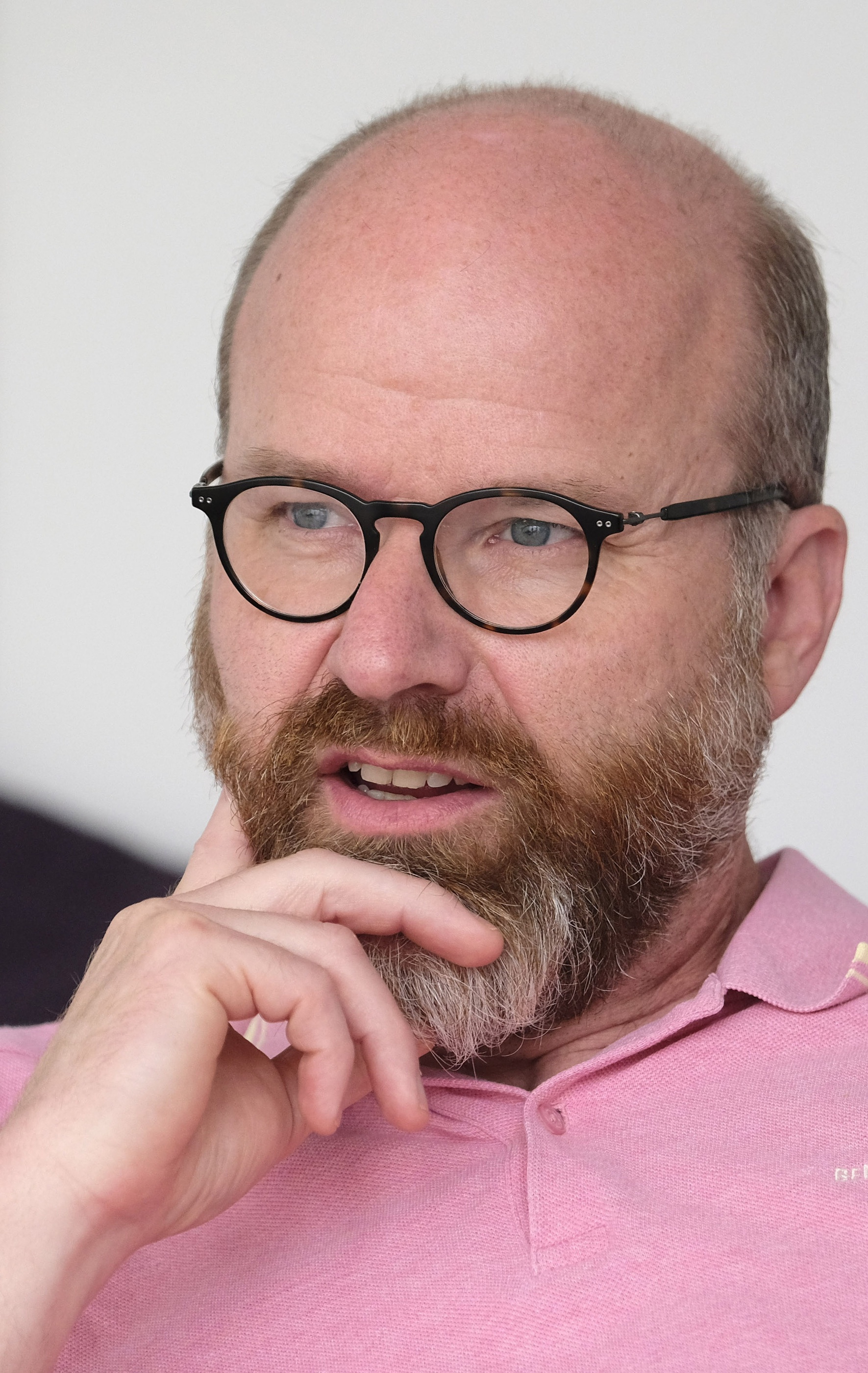 | Patrick van der Smagt is director of the open-source Volkswagen Group Machine Learning Research Lab in Munich, focussing on probabilistic deep learning for time series modelling, optimal control, robotics, and quantum machine learning. He is also a faculty member of the LMU Graduate School of Systemic Neurosciences and research professor at Eötvös Loránd University Budapest. He is the founding head of a European industry initiative on certification of ethics in AI applications (etami). Patrick previously directed a lab as professor for machine learning and biomimetic robotics at the Technical University of Munich, while leading the machine learning group at the research institute fortiss. He founded an headed the Assistive Robotics and Bionics Lab at the DLR Oberpfaffenhofen. Ages ago he did his PhD and MSc at Amsterdam’s universities on neural networks in robotics and vision. Besides publishing numerous papers and patents on machine learning, robotics, and motor control, he has won a number of awards, including the 2013 Helmholtz-Association Erwin Schrödinger Award, the 2014 King-Sun Fu Memorial Award, the 2013 Harvard Medical School/MGH Martin Research Prize, and best-paper awards at machine learning and robotics conferences and journals. He was founding chairman of a non-for-profit organisation for Assistive Robotics for tetraplegics and co-founder of various tech companies. |
https://datalab-munich.de
Linkedin
Dat Tran
Head of AI, Axel Springer AI
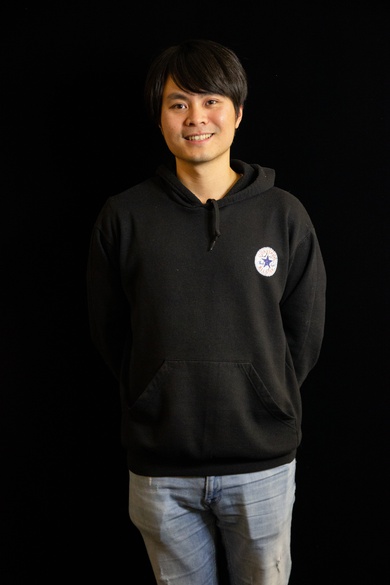 | Dat is heading Axel Springer AI, the artificial intelligence unit of Axel Springer SE which is the largest digital publishing house in Europe. His goal is to make AI more accessible within Axel Springer and hence drive innovation within the group. His ultimate plan is to turn Axel Springer into an AI first company. Dat’s interests are diverse from traditional machine learning, deep learning, AI in general to computer vision and NLP. He is a regular speaker and has presented at several renowned conferences. He also blogs about his work on Medium. |
https://ai.axelspringer.com
Linkedin
15.45 – Break
15.50–Performance
Moritz Simon Geist
Performer, musicologist, and robotics engineer
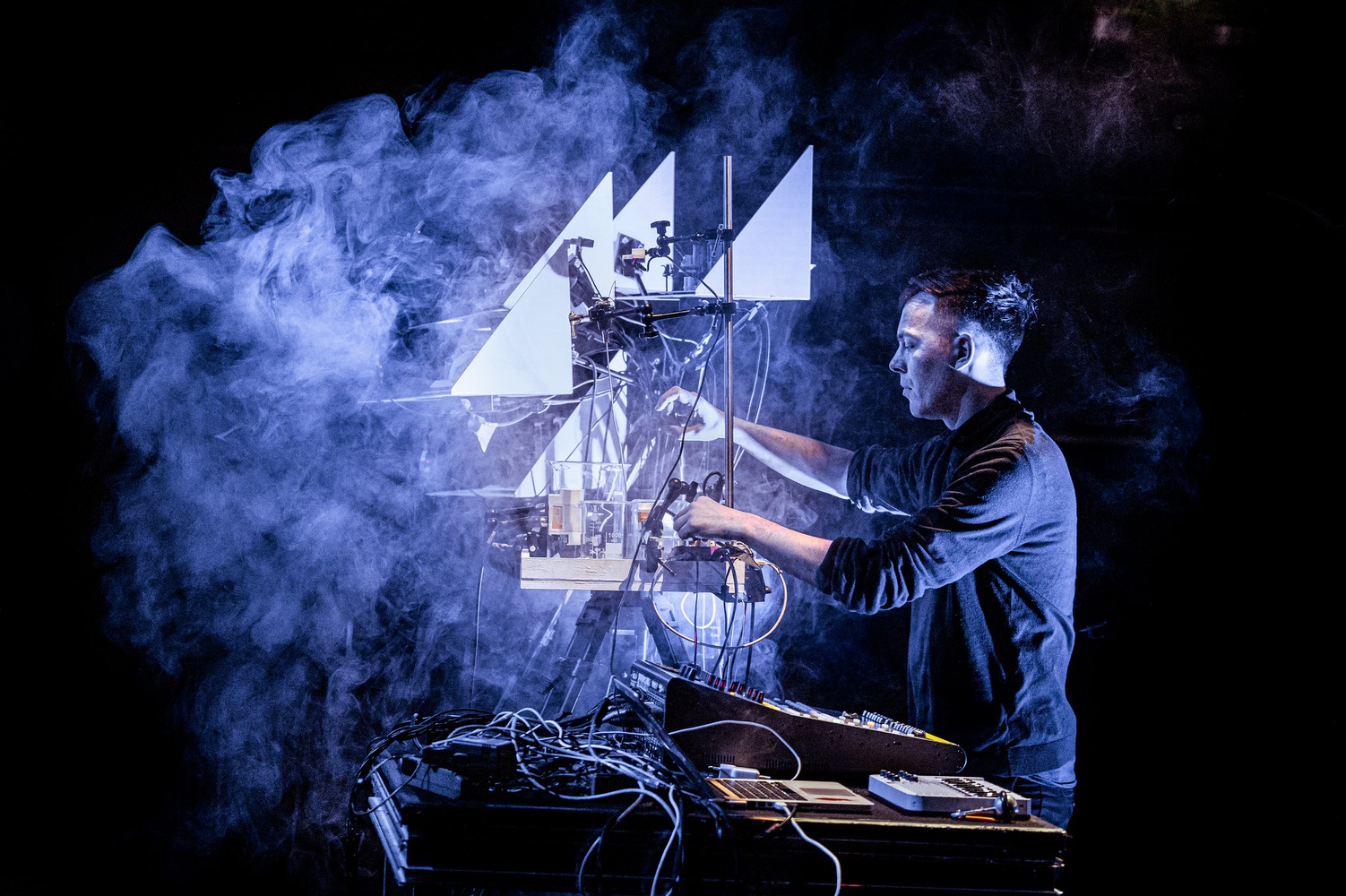 | Moritz Simon Geist is a performer, musicologist, and robotics engineer. He started because he wants to invent the future of electronic music – with robots! Geist’s projects range from robotic music performances to robotic sound installations. His robotic instruments and performances have been shown in numerous European festivals and exhibitions throughout the last years. He collaborates with performers such as Mouse on Mars or Robert Lippok and teaches on the progression of technology and society at the NYU Berlin. He was awarded numerours internation awards. His background is both as a classical musician and a robotics engineer, with an expertise in prototyping technologies and 3D-Printing. |
Bandcamp: /moritzsimongeist
Instagram “@moritzsimongeist”
Twitter: @simongeist
16.20 – Break
16.30 – Dialogue II
Agnieszka Kurant, an artist who has used AI in many of her artworks, and Luc Steels, a computer scientist who was at the forefront of the developments of AI, will discuss how art and AI can interact in a critical and yet constructive way. How can AI and art address societal challenges?
Agnieszka Kurant
Conceptual interdisciplinary artist
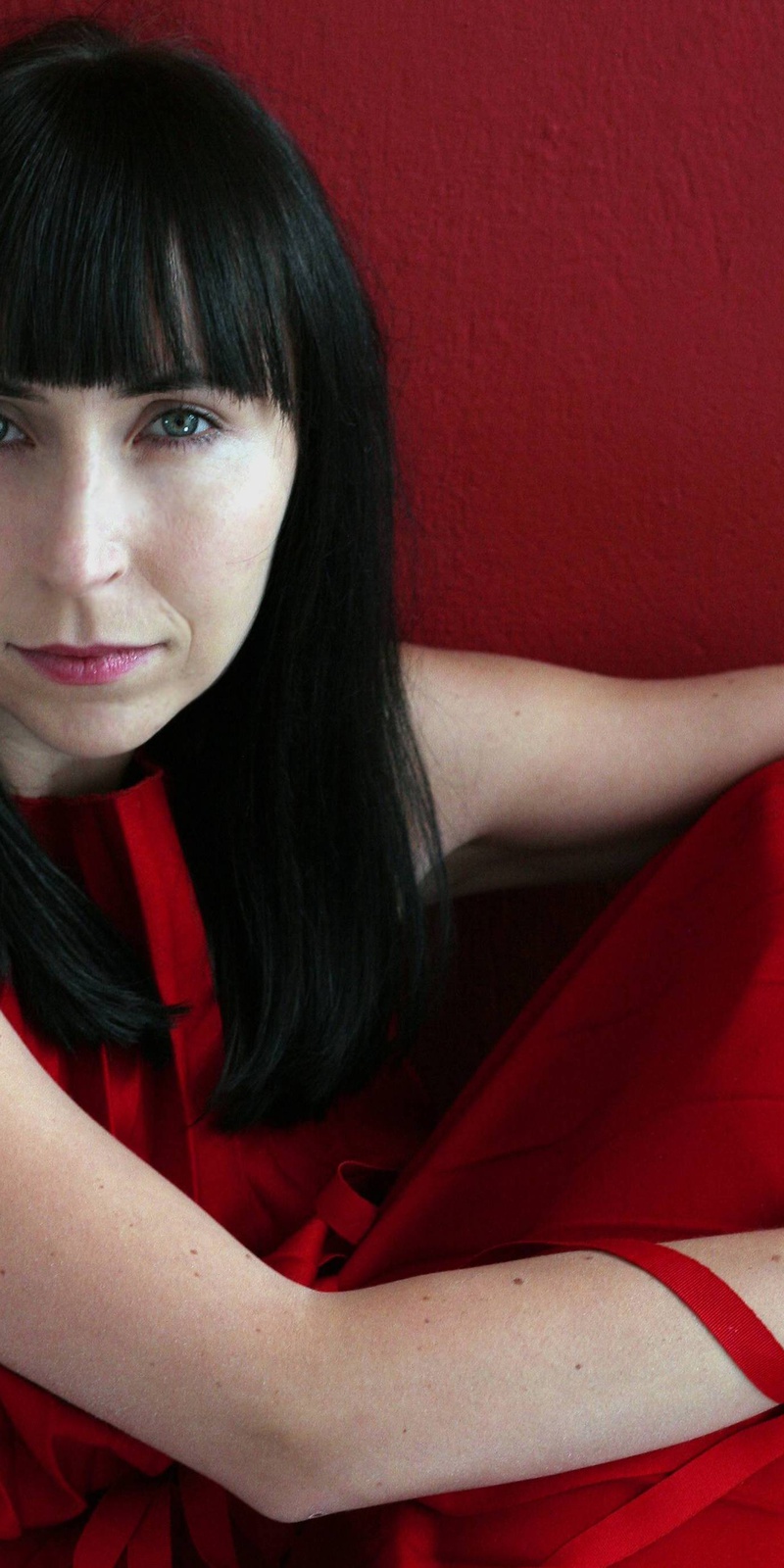 | Agnieszka Kurant explores how complex social, economic and ecological systems can operate in ways that confuse distinctions between fiction and reality or nature and culture. Probing collective intelligence, non-human intelligences (Artificial Intelligence, animal and microbial intelligence) and the exploitations of social capital under surveillance capitalism, the artist explores the transformations of the human and the future of labour and creativity in the 21st century. Kurant is the recipient of the 2019 Frontier Art Prize. In 2019 she won the MIT List Visual Arts Center competition for a permanent public commission at MIT Kendal Square in Cambridge, Massachusetts. Her recent exhibitions include Uncanny Valley: being Human in the Age of AI, De Young Museum, San Francisco, the Istanbul Biennial, curated by Nicolas Bourriaud, The Age of You at the MOCA Toronto, curated by Hans Ulrich Obrist, Douglas Coupland and Shumon Basar (2019) and Milano Triennale (2019), curated by Paola Antonelli. |
https://arts.mit.edu/artists/agnieszka-kurant/#about-the-residency
Luc Steels
Research Professor and Fellow of ICREA - (Catalan Institute for Research and Advanced Studies)
Institute for Evolutionary Biology (UPF/CSIC)
Barcelona
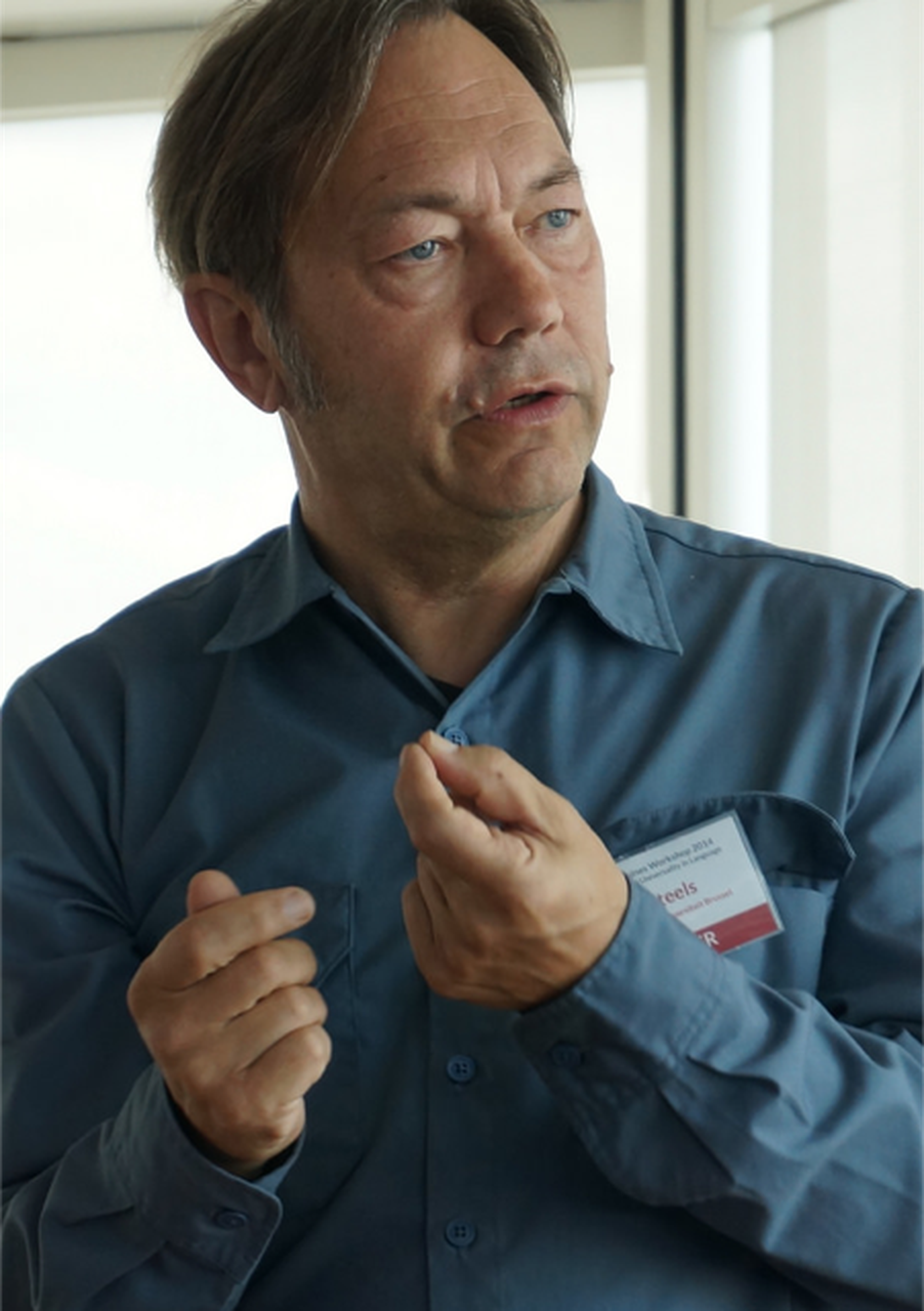 | Luc Steels, Ph.D., is a scientist working in the field of artificial intelligence since the early nineteen-seventies. He studied languages and literature at the University of Antwerp and then computer science and artificial intelligence at the Massachusetts Institute of Technology (US). In 1983 he founded the Artificial Intelligence Laboratory at the Free University of Brussels (VUB) and became full professor in computer science and chairman of the department. 40 Ph.d’s graduated under his direction in many areas of artificial intelligence, from knowledge systems to robotics and language processing. In 1996, he founded the Sony Computer Science laboratory in Paris, a fundamental research lab where one of the primary goals was to explore the potential of computers for the creation, distribution, and access to music. He is currently a fellow at the Institute for Advanced Studied (ICREA) in Barcelona, embedded in the Institute for Evolutionary Biology (CSIC-UPF). His main research target during the past decade has been the development of models for the origins and evolution of language using robotic experiments and computational simulations. |
https://ai.vub.ac.be/team/steels/
16.55 – Break
17.00 – Panel II
Ever since antiquity humans have dreamed of interacting with their (non-living) environment. The promise of the digital has always been to create new forms and interactions between humans and their environment using digital machines, sensors, Augmented Reality or more. The CCI can conceive of new forms of interactions and help keep the human in the center. The CCI can furthermore provide an new angle to the application of AI, and AI can provide completely new forms of artistic outputs, business models and projects for the CCI.
Christian Rauch
Founder & Managing Director, STATE Studio
Moderator
veronika_natter.jpg) | Christian is founder and director at STATE and responsible for creative concepts and strategy. With a background in physics anda lifelong passion for arts & culture, Christian has founded STATE in 2014 to stimulate exchange around relevant topics of cutting-edge research and facilitate creativity without borders. After graduating from TU Berlin, Christian received a PhD in Applied Physics researching on novel semiconductors as Marie-Curie Fellow at Aalto University, Helsinki. He is a visiting faculty member at the European Center for ExecutiveDevelopment (CECEP) and works with executives and change-makers to envision sustainable futures. Christian is active fellow of the Responsible Leaders network of the BMW Foundation, cultural partner of the United Nations AI for Good Global Summit and ambassador for the US-based XPRIZE Foundation |
https://state-studio.com
https://linkedin.com/in/christian-rauch-06a1a9a
Dr. Alexandra Daisy Ginsberg
Artist
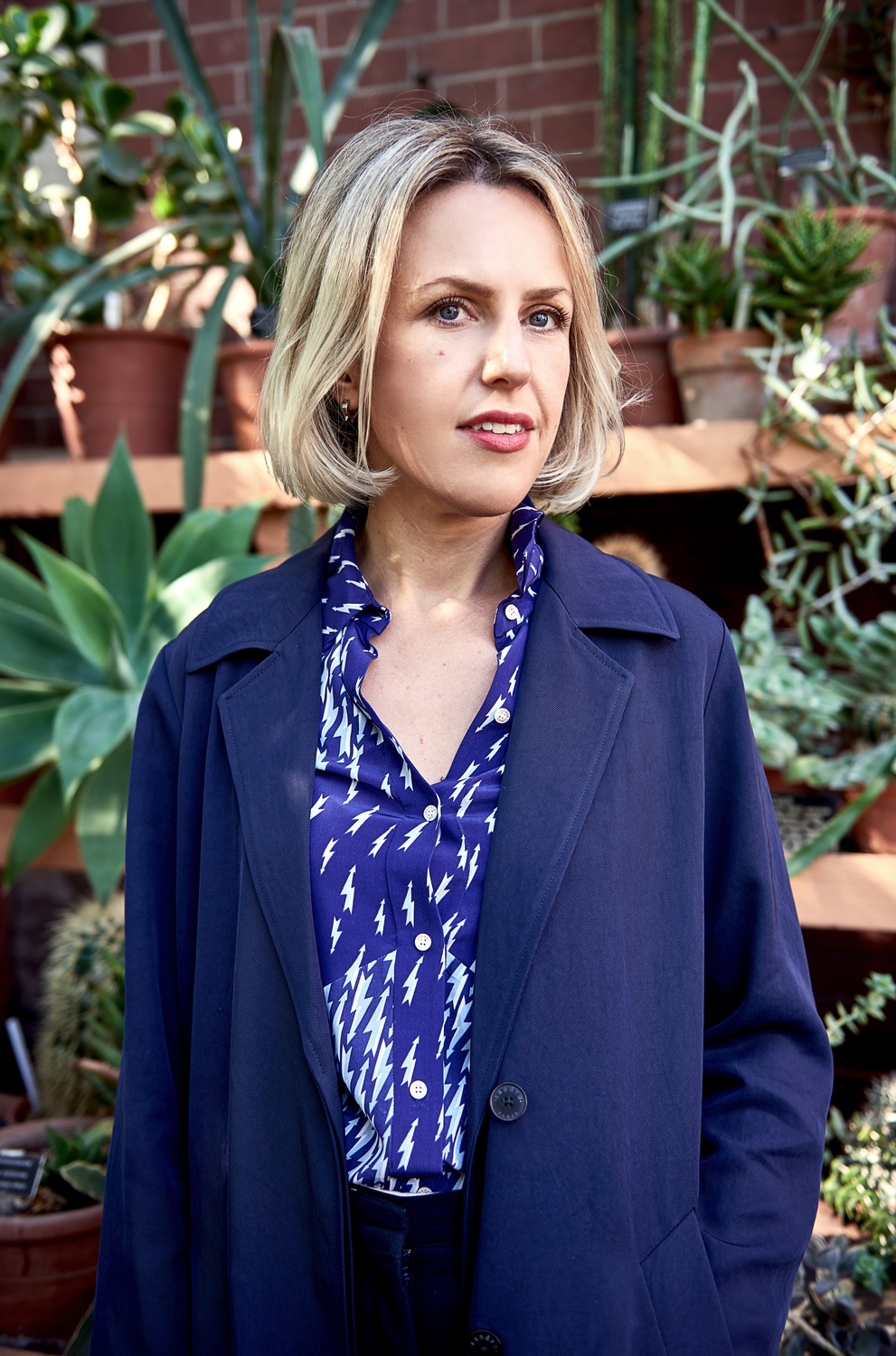 | Dr Alexandra Daisy Ginsberg is an artist examining our fraught relationships with nature and technology. Through subjects as diverse as artificial intelligence, synthetic biology, conservation, and evolution, her work explores the human impulse to “better” the world. She read architecture at the University of Cambridge, design at Harvard University, and received her MA in Design Interactions at the Royal College of Art (RCA). Daisy since spent over ten years experimentally engaging with the field of synthetic biology, developing new roles for artists and designers. She is lead author of Synthetic Aesthetics: Investigating Synthetic Biology’s Designs on Nature (MIT Press, 2014), and in 2017 completed her PhD, Better, at the RCA, interrogating how powerful dreams of “better” futures shape what we design. Daisy received the World Technology Award for Design 2011, the London Design Medal for Emerging Talent 2012, and the Dezeen Changemaker Award 2019. Daisy has exhibited at MoMA New York, the Museum of Contemporary Art, Tokyo, the Centre Pompidou, and the Royal Academy, and her work is in museum and private collections. |
https://www.daisyginsberg.com/about
https://www.instagram.com/daisyginsberg/
https://twitter.com/daisyginsberg
Dr. Ben Goertzel
CEO, decentralized AI network SingularityNET Chief Scientist, Hanson Robotics
more information to come
Jennifer Heier
Head of UX driven AI, Siemens digital industries data lab
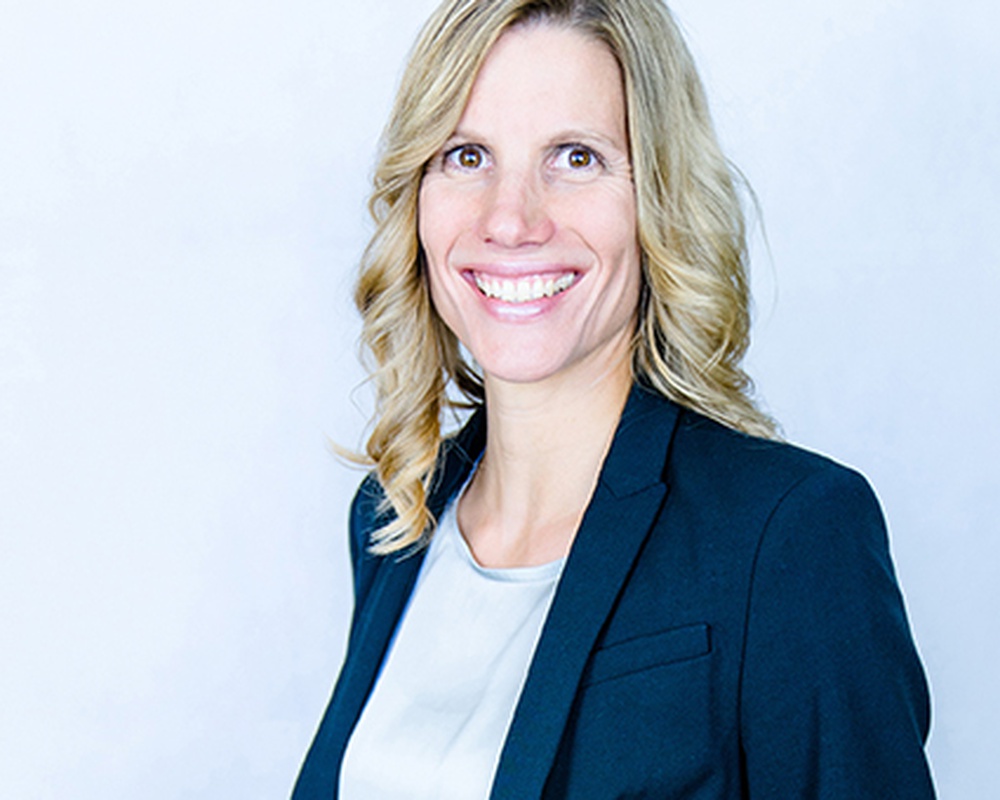 | Jennifer is an industrial designer at heart who’s specialized in user and customer research. She loves to work in a diverse and cross disciplinary team close to new technology topics contributing her passion for human-centric-innovation and continuously questioning the status quo. She is currently working at Siemens digital industries data lab as Head of UX driven AI, bringing the human factor into the B2B context. Besides, she is doing her PhD at the Bauhaus University in Weimar investigating how the creative community should and could positively influence AI development. She believes in the power of her professio to contribute and add value to the challenges, as well as opportunities, of the digital age. |
http://2020.hci.international/ai-hci.html (board member)
Reinhard Karger
Corporate Spokesman, German Research Center for Artificial Intelligence / Deutsches Forschungszentrum für Künstliche Intelligenz, DFKI
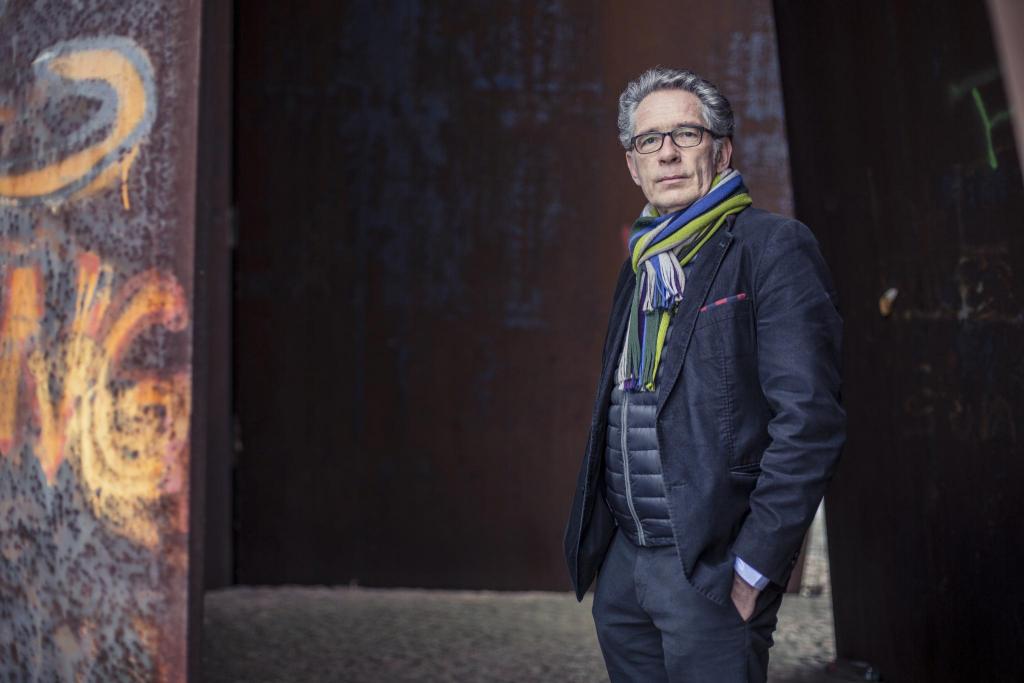 | Reinhard Karger (1961), M.A., studied theoretical linguistics and philosophy in Wuppertal. He was assistant at the Chair of Computational Linguistics of Saarland University. Since 1993 he works for the German Research Center for Artificial Intelligence, DFKI, in Saarbrücken and since 2011 he has been the corporate spokesman of DFKI. He has been working for 35 years in the fields of theoretical linguistics and artificial intelligence, with an interest for philosophy of consciousness, digital innovation culture and history of science. Reinhard Karger was a member of the jury of the “Excellent Places” competition for over ten years, has been ambassador of “Germany – Land of Ideas” since June 2019. Hewas appointed to the jury of the German Mobility Award in 2020. From May 2014 to June 2017 he was President of the German Society for Information and Knowledge. (DGI). Since February 2017 he has been MINT ambassador for Saarland, in March 2018 he was appointed one of the 100 Fellows of the Competence Centre for Cultural and Creative Industries of the German Federal Government. In addition, he is a juror of the competitions Kreativsonar (state) and Kreativpiloten (federal government). |
https://twitter.com/ReinhardKarger
https://www.facebook.com/DFKI.GmbH
https://www.linkedin.com/in/reinhardkarger/
https://www.dfki.de
Christian MioLoclair
Creative director, Waltz Binaire
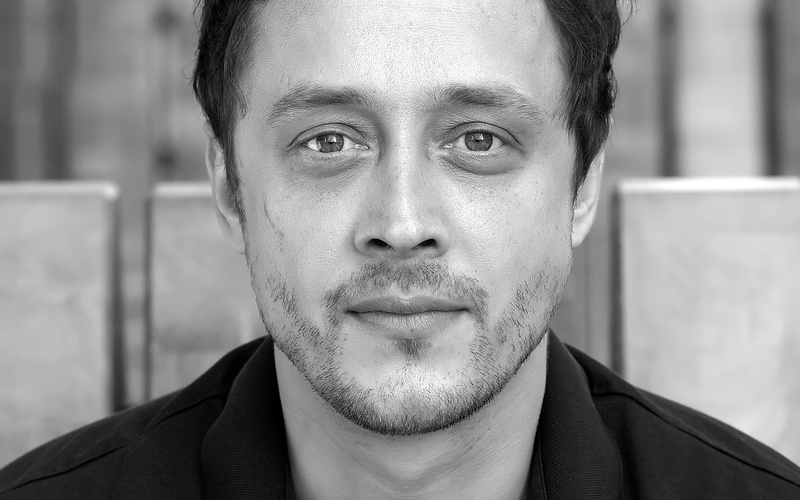 | Christian “Mio” Loclair, creative director at Waltz Binaire, is a new media artist, computer scientist and choreographer from Berlin, Germany. He explores the friction of nature colliding with data and digital procedures. Using cutting edge technology and artificial intelligence in interactive installations, audio-visual experiences, visual narratives and dance performances, he continuously explores the harmony and tension of the encounter of humans and machines. Mio is publishing his work on digital installations, unexpected galleries and theatre stages around the world for commercial and independent projects. His work has been featured by companies such as Google, IBM, Mercedes Benz, BMW and VW and presented at museum such as Ars Electronica and Centre Pompidou. To enrich the perception of digital phenomena and to communicate meaningful ideas, is why he moonwalks on motherboards. |
17.45 – Break
17.50 – Closing
The programme will be held in English & German. The event is organized by the Federal Government’s Centre of Excellence for the Cultural and Creative Industries and the European Commission’s S+T+ARTS initiative.
Live Stream on July 2 & 3 on this page!
Follow the STARTS-EU social media to keep updated. No registration needed!
Friday, July 3rd, 2020 | 10 AM – 12.30 PM and 6.00 PM - 10.00 PM
Empathic AI – Art shapes Industry
Art beyond Digital
On the opening day of the exhibition, July 3rd, 2020, NEAR + FUTURES + QUASI + WORLDS presents a full morning program of online events engaging key figures in the fields of art, science, technology, and policy making, to discuss some of the most crucial topics at stake in this European initiative. From the poetics of quantum physics and its impact on future technology, to the productive dialogue between the digital and material spheres in today’s artistic and industrial production.
10.00 – Welcome
- STATE Studio by Cristian Rauch
- STARTS by Ralph Dum
- Fraunhofer Gesellschaft by Prof. Dr. Ralf Wehrspohn, Executive Vice President for Technology Marketing and Business Models
- Curator message by Manuel Cirauqui
10.15 – Dialogue
Evelina Domnitch and Dmitry Gelfand + Tommaso Calarco
.jpg) 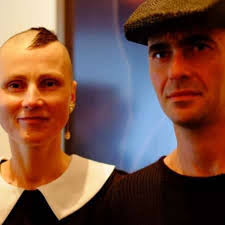 | Dmitry Gelfand (b.1974, St. Petersburg, Russia) and Evelina Domnitch (b. 1972, Minsk, Belarus) create sensory immersion environments that merge physics, chemistry and computer science with uncanny philosophical practices. Current findings, particularly regarding wave phenomena, Having dismissed the use of recording and fixative media, Domnitch and Gelfand's installations exist as ever-transforming phenomena offered for observation. Because these rarely seen phenomena take place directly in front of the observer without being intermediated, they often serve to vastly extend the observer's sensory envelope. The immediacy of this experience allows the observer to transcend the illusory distinction between scientific discovery and perceptual expansion. |
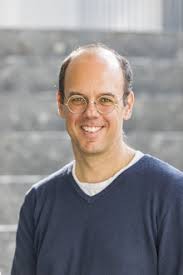 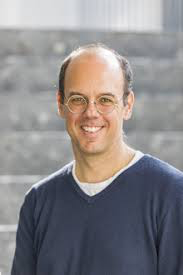 | Tommaso Calarco is Director of the Institute for Quantum Control of the Peter Grünberg Institute at Forschungszentrum Jülich. He received his PhD at theUniversity of Ferrara and started to work as a postdoc in the group of P. Zoller at the University of Innsbruck. Hewas appointed as a Senior Researcher at the BEC Centre in Trento in 2004 and as a Professor for Physicsat the University of Ulm in 2007, where he then became Director of the Institute for Complex Quantum Systems and of the Centre for Integrated Quantum Science and Technology. He has authored in 2016 the Quantum Manifesto, which initiated the European Commission’s Quantum Flagship initiative, and is currently the Chairman of its Quantum Community Network. |
10.45 – Curator’s guided tour
Manuel Cirauqui takes us on a curatorial guided tour of the exhibition NEAR + FUTURES + QUASI + WORLDS
11.30 – S+T+ARTS Talk
Art beyond Digital
This online conversation addresses current perspectives of a generative dialogue between advanced technology and contemporary art practices. Particularly central to this debate is the constant exchange between the virtual and physical spheres, the new materialities that emerge from digital and post-digital work, and the redefinition of key concepts to art and society by artificial intelligence, machine learning, and blockchain.
Moderation:
Eva Kaili
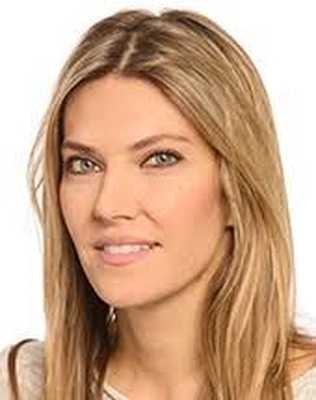 | Eva Kaili is a Member of the European Parliament since 2014.She is the Chair of the Future of Science and Technology Panel in the European Parliament #STOA, Member of the Industry and Energy Committee (ITRE) and of the Committee on Budgets (BUDG). In her capacity, she has been working intensively on promoting innovation as a driving force of the establishment of the European Digital Single Market. She has been the draftsperson of multiple pieces of legislation in the fields of blockchain technology, online platforms, big data, Fintech, AI and cybersecurity. She is the founder of the Future Forum, a network of influential politicians, officials and public figures promoting innovation. |
http://www.evakaili.gr/en/category/european-parliament/
Guest Speakers:
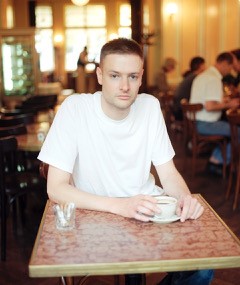 | Simon Denny (*1982 Auckland/New Zealand)lives and works in Berlin. He makes exhibitions that unpack the social and political implications of the technology industry and the rise of social media, startup culture, blockchains and cryptocurrencies, using a variety of media including installation, sculpture, print and video. He studied at the Elam School of Fine Arts, University of Auckland, graduating with a BFA in 2005 and at the Städelschule, Frankfurt am Main, with a Meisterschule in 2009. Denny’s work has been exhibited recently in solo exhibitions at Altman Siegel gallery, San Francisco (2020); the Museum of Old and New Art (Mona), Tasmania (2019), MOCA, Cleveland (2018); OCAT, Shenzhen (2017); Hammer Museum, Los Angeles (2017); WIELS Contemporary Art Centre, Brussels (2016); Serpentine Galleries, London (2015); MoMA PS1, New York (2015); Portikus, Frankfurt (2014) MUMOK, Vienna (2013); Kunstverein Munich (2013). He represented New Zealand at the 56th Venice Biennale in 2015. His works are represented in institutional collections including MoMA (New York), Walker Art Centre (Minneapolis), Kunsthaus Zürich (Zürich), Sammlung zeitgenössischer Kunst der Bundesrepublik Deutschland (Berlin) and Museum of New Zealand Te Papa Tongarewa (Wellington). Denny co-founded the BPA//Berlin Program for Artists, an artist mentoring program in 2016. Since 2018, he is a professor for Time Based Media at the HFBK, Hamburg. |
Ralf Baecker
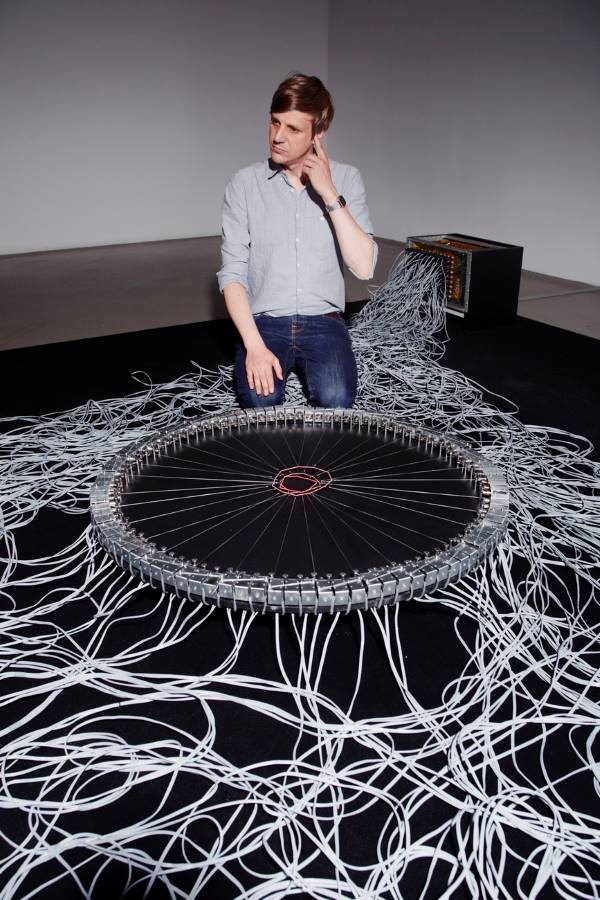 | Ralf Baecker works at the interface of art, science and technology. Through installations and machines, Baecker explores fundamental mechanisms of new media and technologies. In his representations and specializations of digital and technological processes he offers a poetic sight behind the surfaces of contemporary image making. At the core of his objects lies the entanglement of the virtual with the real, or rather, with the world. With a media-archaeological outlook, Ralf Baecker digs within obsolete devices for traces and functions that are still detectable in technologies today. His work seeks to form a hybrid between contemporary digital methodologies and a material oriented artistic practice. As a result, he understands technology not as a tool but rather as an epistemological instrument, in order to pose elemental questions about a world perceived through technological impressions. |
Rebecca Johnson
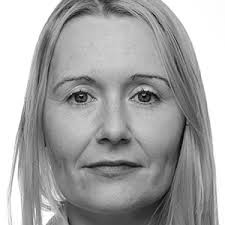 | Rebecca Johnson is an expert in artificial intelligence. She is Research Group Head at Siemens Corporate Technology. Her research focus is Artificial Intelligence where she is currently working on Digital Companion technologies and Generative Design. Rebecca originally studied Media Management with focus on Internet production and spent numerous years working as technical architect in internet agencies leading web-, social and mobile projects with customers such as Coca Cola, Merc, Allianz, Utopia, OSRAM or Bayer. |
https://www.linkedin.com/in/rebecca-johnson-149424a7/?originalSubdomain=de
Paul Lukowicz
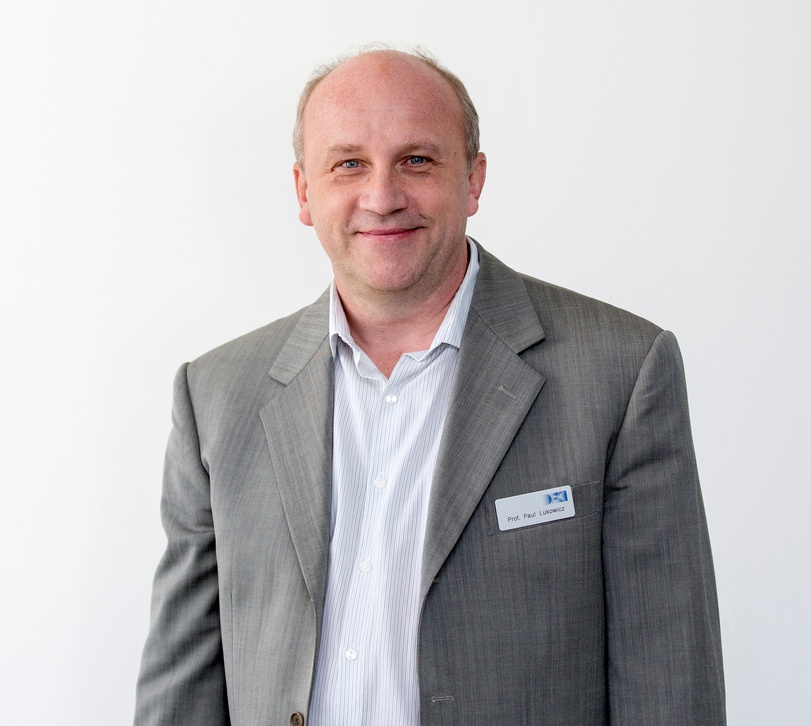 | Prof.Paul Lukowicz has been both Scientific Director of the German Research Center for Artificial Intelligence (DFKI GmbH) and Chair of Embedded Intelligence in the Computer Science Department at TUK in Kaiserslautern since 2012. His main research areas are in context-specific, wearable recognition systems which include pattern recognition, system architectures, models, complex self-organising systems and their applications. |
12.30 – End of Digital Symposium
18.00 – 22.00 PM Public Exhibition Opening (On-Site)
Registration to the on-site opening is required and possible from June 30, 12:00 via Eventbrite.
Important Information
We kindly ask for your understanding that the opening event is happening under the observance of current restrictions regarding COVID-19. In order to avoid queues and reduce contacts, access to the event is regulated via the reservation of individual visiting slots. Access to the exhibition is only possible at the reserved time. Guests are encouraged to arrive not more than 10min earlier and to leave the exhibition area quickly after their visit. A meeting area is reserved at Train Cocktailbar (Hauptstr. 162) across the street to allow for socialising after the visit and avoid crowds gathering in front of the space. Entrance to the gallery only permitted wearing a mask.


